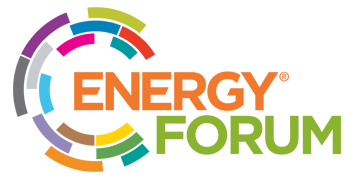Author:
Dr Paul Dodds
Associate Professor in Energy Systems
UCL Energy Institute | UCL Institute for Sustainable Resources

I’ve organised energy systems sessions at All-Energy for the last few years. One thing that has become clear to me is that we have very different interpretations of energy systems, depending on their backgrounds.
Many of you might agree with the IPCC Fifth Assessment Report, which defines an energy system as “all components related to the production, conversion, delivery, and use of energy”. This is a very engineering-focused description.
In a recent research project, we asked members of the public to draw the energy system. They typically drew power plants and wind turbines that were linked to homes by transmission wires. The focus on the electricity system, rather than the wider energy system, reminds me of the many electricity-focused abstracts submitted to the energy systems sessions at All-Energy.
This raises the question of where we draw the boundary of an energy system.
The electricity system is a type of energy system. Yet an engineer working on part of a gas turbine might consider the whole turbine as an energy system. Abstracts on such technologies have been submitted to the energy systems session as well.
But we’re still in the world of engineering. Energy economics brings a different perspective – it treats an energy system as a combination of technical and economic systems, including but not limited to markets, that satisfy consumer demand. While appearing broader than the other definitions, it has the weakness that it does not account for demand-side measures such as insulating buildings or energy demand management. So perhaps a broader definition is required.
Let’s start by defining our boundaries. The UK has an energy system covering all resources, fuels, technologies, end-uses, markets, regulations, etc. Within this, we could define smaller energy systems in different ways – for example, we could define the electricity system across the UK, or we could define all types of energy production and use at a local scale.
Another boundary we need to consider is time. The definitions above describe a fixed system in time. In my research, we build “E3” models (engineering, economics and environment) that examine all types and demands for energy in national energy systems. We use these models to understand how the energy system can evolve over decades to meet our environmental policies on climate change and air pollution.
But these models exclude customers, companies and other actors, and the social side of the energy system more generally. If we wish to fully define an energy system, perhaps we need to account for all technical, environmental, economic and social aspects. I’ve created the diagram above to try to express these aspects. What do you think of it? Can you do better?
So how will we treat energy systems in All-Energy 2020?
We plan three sessions. In the first, we’ll consider the future of gas in the UK. The second will focus on the electricity system, and will explore contentious issues such as whether engineers or economists should be in charge. The final session will take a broader look at national energy system transitions, including what they might look like, how we get there, and the importance of innovation. I look forward to seeing you there!
https://www.all-energy.co.uk/Conference/2020-Call-for-Papers/


